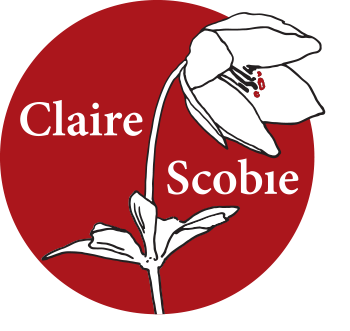16 Dec 10 ways to be more creative
I’m always looking for ways to boost my creativity. This week I’ve been dipping into The Creative Habit by the American choreographer Twyla Tharp who offers plenty of inspiration on how to make creativity a habit.
For a start she believes in rituals. Rituals help train the mind. They have ‘a transforming effect on the activity.’
Like Twyla, who gets up at 5.30 am every day, takes a cab to the gym and works out for two hours before she starts her day, the writer Walter Mason (Destination Saigon) gets up at 6am to meditate for two hours. Only then does he start writing.
I have such admiration for people like that. I’m not an early morning person and can rarely stick to one routine.
Walter takes a wide-angle view to creativity. For him it is all about collaboration, community and helping each other out.
 He sees himself as being ‘part of a creative wave.‘ He is ‘only one small drop of water but the motion of the wave pushes him to the top.’
He sees himself as being ‘part of a creative wave.‘ He is ‘only one small drop of water but the motion of the wave pushes him to the top.’
I love that idea and know that in my career I’ve benefited hugely from his generousity. He always ‘tells people to be the readers they wish they had. Be a super fan and help create the literary culture you want.’
You see, being creative is not just hammering out your own opus or travel story or blog. It’s about becoming part of something bigger. Walter is so passionate about this philosophy that he’s designed an entire workshop – Fabulously Creative – on how to expand our vision.
So here are 10 tips to be more creative – in writing & in life
- Develop routine. Sound counter-intuitive? I may not get up at dawn but I still have writing routines which help train and settle my mind.
- See your writing as a piece of art. Or an opera. Or a film. What would it look like? This is great advice from the screenwriter David Roach. When I was writing The Pagoda Tree I imagined it as a chiaroscuro oil painting by Caraveggio with strong contrasts between light and dark and lots of atmosphere.
- Take that further. If you get stuck, broaden your mind by going to a gallery or the cinema and let other art forms freshen your words.
- Write in a library. Writing among a group of focused people can encourage you to spend longer chiseling your own story.
- Change your scenery. I know one writer who divides his time between two libraries. He writes a commissioned memoir in one and his novel in the other.
- Be helpful. This is one of Walter’s top tips. ‘One of the least-recognised sources of creative inspiration is the celebration of others,’ he says. ‘I meet people who are overly-protective of their work or their time, who are obsessed with limiting their output and reining in the energy. I say let it all out!’
- Go without. Twyla Tharp says that people diet all the time but they rarely starve themselves of distractions. Spend one week without the TV or social media or clocks or newspapers. Focus all that time on writing instead.
- Challenge yourself. Every time you leave the house write down some dialogue you hear and imagine a new character with those words. Find a new word every day and make a point of using it in your stories.
- Be playful. When were you last silly or danced around your living room? Look at how children grab every moment they can to play and bring that quality into your writing or your cooking or your eating.
- And to end some more of Walter’s wisdom. ‘Tell someone else daily how wonderful another writer or actor or artist is. If you can cultivate this way of being you’ll never lose your mojo. Instead you are constantly renewed, constantly inspired and, inevitably, bowled over by the generosity of the community you have helped create.’
